Since 2017, the Clinical Quality Improvement Program (CQIP) has provided a forum for Saskatchewan’s physicians and clinicians to expand their theoretical and applied knowledge of quality improvement (QI) methods in clinical settings. The ten-month course was designed for actively-practicing physicians and clinicians, empowering them with the skills to lead QI projects, consult on QI work and teach clinical improvement methods to others. The program has had several cohorts and has trained over 90 physicians and clinicians (as of June 2022). If you’re in a clinical environment and interested in QI, here are some reasons why you should enroll in CQIP.
1. You can expand your technical knowledge.
As part of the program, participants will get into the nitty-gritty of QI science and methodology. The curriculum teaches participants to truly understand a problem before moving to action, develop a guiding aim statement, establish a measurement plan to determine if the changes they are testing are bringing them closer to their aim, and how to guide and leverage a team in their improvement efforts.

2. You’ll learn how to incorporate QI into daily practice.
An essential part of CQIP is the hands-on learning through a clinical improvement project. Participants must identify a problem (related to QI in a clinical setting) that aligns with health system priorities and improves processes and outcomes for patients. Participants will work with faculty and their coach and, at the end of the course, present their findings to their peers. The idea with quality improvement is that it’s continuous – it becomes a new approach to problem-solving and managing processes, to strive for continuously better outcomes.

3. There are networking and engagement opportunities.
CQIP attracts a range of participants from a variety of clinical specialties, including non-physician roles. Graduates have included surgeons, specialists, emergency room and family physicians, pharmacists, nurse practitioners and physiotherapists. Participants have the opportunity to meet and learn from colleagues across the province, broadening their professional networks.

4. Coaching and mentorship is available for all participants.
Every CQIP participant is paired with a coach to help support and guide them in their project work. Coaches are seasoned CQIP alumni experienced in QI and available to guide participants on their QI journeys. The program allows for regular check-ins with their coach. Participants will be matched to their coach once they are accepted into CQIP.
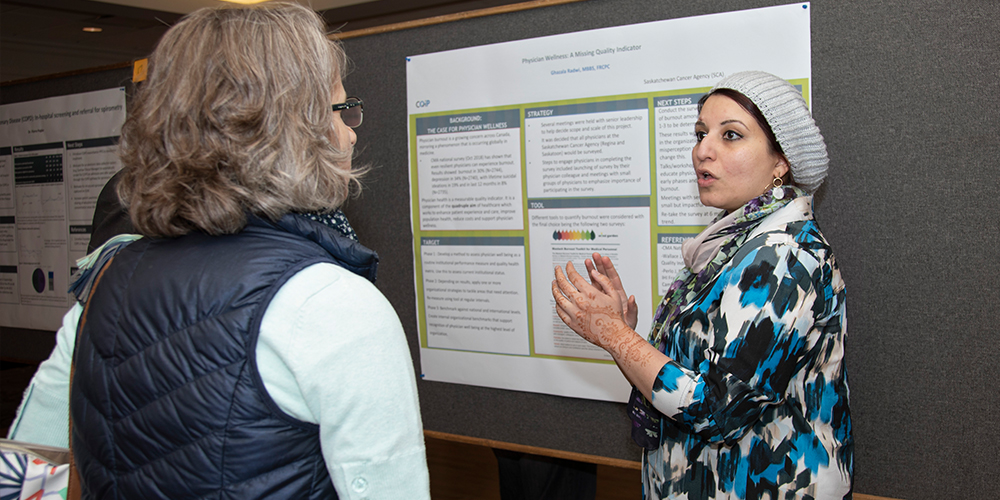
5. There is no tuition charged to participants.
Program costs are subsidized through a partnership between HQC, the Saskatchewan Medical Association, the Saskatchewan Health Authority and the Saskatchewan Ministry of Health. There is currently no tuition charged.
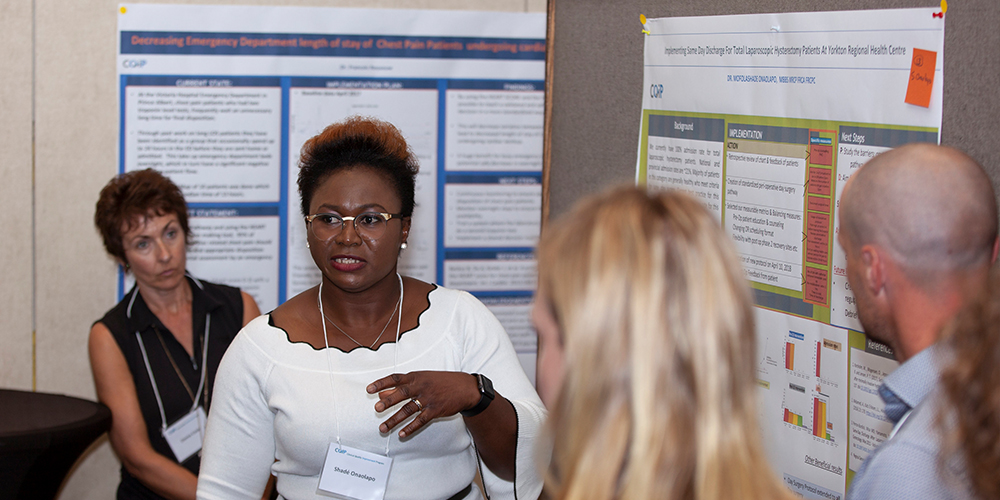
6. Participants are glad they took it.
Evaluation data from past cohorts show their satisfaction with the program, noting the relevance of online modules, workshops and networking opportunities. “Having completed the CQIP program, staff look up to me for QI ideas,” said one alumnus. “I work with them to brainstorm and generate ideas using QI principles and methods. This is amazing as it gives everyone a sense of ownership.”

7. QI is applicable in all care settings.
Physicians and clinicians from all settings, including long-term, community, acute, and primary care, may participate. While the focus is on clinical quality improvement, the knowledge and skills developed through CQIP can be applied to a diverse range of improvement projects.
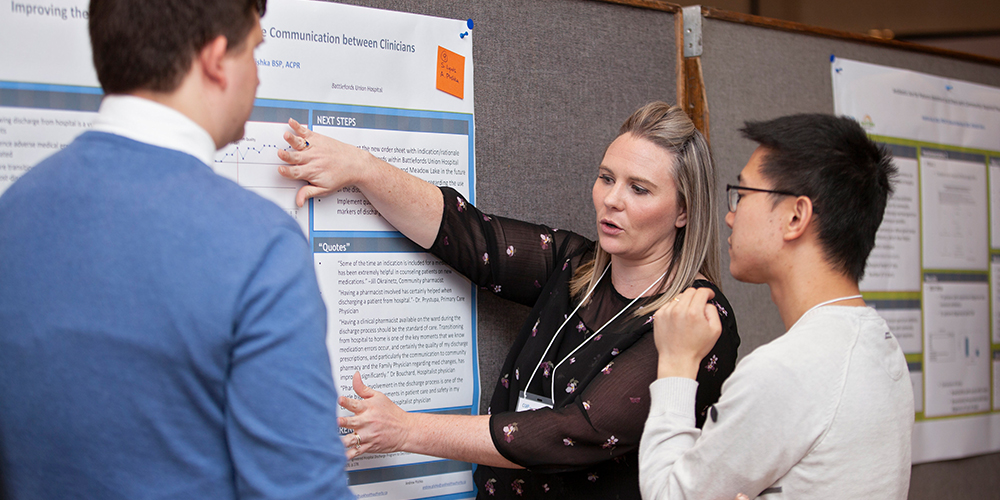
8. It was designed with medical leadership in mind.
CQIP aligns with CanMEDS, a framework established by the Royal College of Physicians and Surgeons of Canada. Based on empirical research, sound education principles and broad stakeholder consultation, the framework identifies and describes the abilities required by physicians to effectively meet the health-care needs of the people they serve.
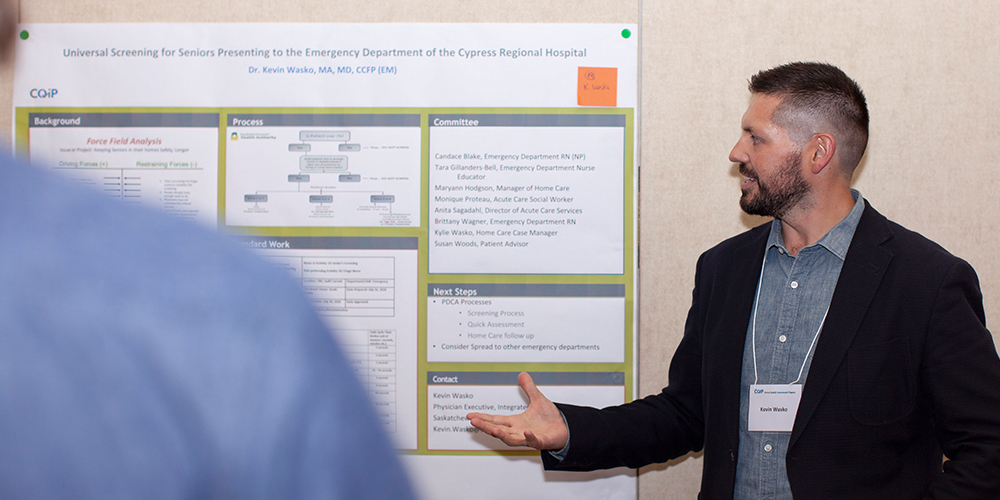
9. You can make a difference and improve patient care.
By providing participants with the knowledge, tools and techniques to enact positive change, they can directly contribute to a culture of QI and enhanced patient care in Saskatchewan.
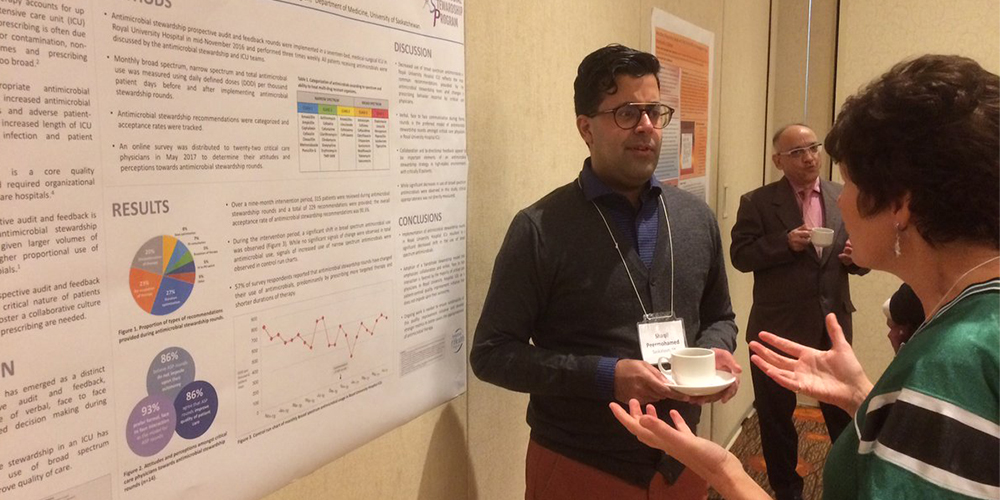
10. Alumni can (and do!) give back to the QI community.
By joining CQIP, you are joining a community of dedicated, passionate QI practitioners in the province. An important aim of CQIP is to develop provincial capacity for leading clinical QI. Graduates are expected to give back to the learning community; many return to CQIP to serve as coaches or faculty, while others provide feedback on program improvements for future cohorts, or are involved in participant selection. Additional options include being involved in related research, conference presentations or other opportunities.

Conclusion
As you can see, there are many benefits of taking the Clinical Quality Improvement Program. We hope you’re convinced to apply for the next CQIP cohort! Learn more about CQIP and how to apply.
Other Resources
- 12-month follow-up survey results
- CQIP external evaluation
- CQIP one-pager
- View projects from past cohort participants




